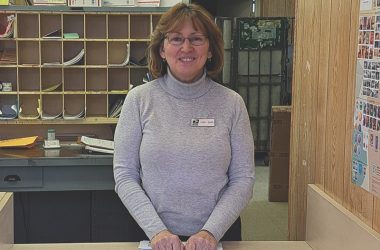by Kate Evans
The Morgan County Partnership received a $1.5 million grant award from the Foundation for Opioid Response Efforts (FORE) for opioid and substance use disorder prevention in vulnerable children and families. Their goal is breaking the cycle of intergenerational addiction and overdose.
 Project Resilience: Addressing ACEs in Appalachia will provide a “new community-wide initiative focused on identifying and supporting children experiencing adverse childhood experiences and their families, according to their press release. Funding will “advance substance use prevention, mental health promotion and Adverse Childhood Experiences (ACEs) supports.
Project Resilience: Addressing ACEs in Appalachia will provide a “new community-wide initiative focused on identifying and supporting children experiencing adverse childhood experiences and their families, according to their press release. Funding will “advance substance use prevention, mental health promotion and Adverse Childhood Experiences (ACEs) supports.
Adverse Childhood Experiences (ACEs) include physical and emotional neglect, physical, emotional and sexual abuse and household dysfunction such as domestic violence, parental divorce, mental illness, substance abuse, incarceration and homelessness.
Morgan County Partnership Executive Director Kristen Gingery said that the number of families affected by opioid and other substance use disorders continues to increase in Morgan County.
Community workers have seen a dramatic increase in overdoses and Narcan-administered overdoses. Teen rates have gone down but adults are still struggling.
Kids exposed to substance abuse and adverse childhood experiences (ACEs) are more likely to experience negative psychological and health outcomes and fall victim to addition, Gingery said.
Statistics
Some 58% of all West Virginia adults reported one or more ACE-related trauma in childhood, with substance use in the home most commonly reported, according to a West Virginia ACEs Coalition report.
During 2014-2018, Morgan County had a 78.3 drug overdose mortality rate per 100,000 population ages 15-64. That’s more than West Virginia’s 70.07 rate and nearly triple the United States mortality overdose rate of 27.1 per 100,000 (University of NORC Study 2020).
Non-lethal opioid overdoses are much higher.
A 2019 Centers for Disease Control and Prevention (CDC) report said West Virginia had the highest overdose rates of any state in 2017, Gingery noted.
Gingery said that Morgan County Prosecuting Attorney stated that 90% of all abuse and neglect court cases are affected by parental or caregiver substance use.
Partnership’s role
The Morgan County Partnership will lead Project Resilience and be the lead fiscal agent and coordinating agency.
Morgan County Partnership will provide parent-child psychotherapy, substance use prevention programming, adverse childhood experiences screening and school-based therapeutic supports.
The Partnership offers a k-5 therapeutic support program and a grades 6-12 Screening, Brief Intervention and Referral to Treatment (SBIRT) substance use prevention and mental health program in Morgan County Schools.
A new ACEs screening tool will be added to their programs, Gingery said. Students with two or more adverse childhood experiences will get follow-up therapy at school.
The grant funding for Project Resilience will also fund efforts by sub-grantees CASA-EP (Court-Appointed Special Advocates of the Eastern Panhandle), Life or Drugs Tri-State Support, Morgan County Starting Points and the Martinsburg Initiative.
CASA-EP
CASA-EP volunteer advocates work with abused or neglected children. The agency will create a new fulltime parent advocate position “to provide case management services and mentorship supports to parents who are involved in abuse and neglect cases resulting from parental substance use.”
The parent advocate will provide home visits and partner with the CASA youth advocates.
CASA-EP’s Fostering Futures program will also provide support for opioid/substance use affected older youth that are transitioning out of the system as an emerging adult.
Life or Drugs
Life or Drugs Tri-State Support offers weekly support groups for those dealing with addiction and recovery and family support for those that have lost family members to overdose. Team Hope, their youth support group, provides mentoring to young people that have experienced ACEs-related trauma.
Life or Drugs will create a case manager position and one new recovery coach/aftercare support specialist. These staff will host weekly SMART Recovery and youth mentorship support meetings and create and staff a local walk-in Recovery Resource Center Café for people needing connections to recovery services.
Starting Points
Morgan County Starting Points Family Resource Center will create parent navigator and Grandfamilies Program Facilitator positions. These staff will take parent referrals from active cases in the 23rd Judicial Circuit Court and connect them to their Nurturing Parent Education program. The navigator will enroll caregivers in the West Virginia State University Healthy Grandfamilies program.
Healthy Grandfamilies provides information on 21st Century parenting, family relationships, technology, social media, healthy lifestyles and stress management.
Martinsburg Initiative
The Martinsburg Initiative is an innovative police-school-community partnership that focuses on ACEs mitigation. They will provide the Morgan County Partnership with intensive ACEs training development on their trauma education program model which will be replicated in the Partnership’s k-5 therapeutic support and SBIRT programs in Morgan County Schools under Project Resilience.
Investing in change
Gingery said that the three-year $1.5 million grant will provide $500,000 each year that will be divided amongst the five agencies to provide the staff and services described in the grant. Project Resilience began April 1 and runs to April, 2025.
Gingery said they’re really excited to get the FORE funding which includes the first paid staff for Life or Drugs Tri-State Support to open a drop-in recovery resource center with office hours instead of just evenings with volunteers.
It will include referrals for inpatient/outpatient treatment for substance abuse, detox and 12-step recovery programs.
“People want to get sober, but they don’t know how,” she said.
CASA served 256 youth in active Child Protective Services cases for three counties but only has 73 active CASA youth advocate volunteers to support them, Gingery said. The parent advocate will be able to take on many more cases than part-time volunteers.
Gingery is also excited that a private agency in New York is willing to invest in this small rural community and is grateful and humbled to create a better community for our young people and work together with others for collective change.









